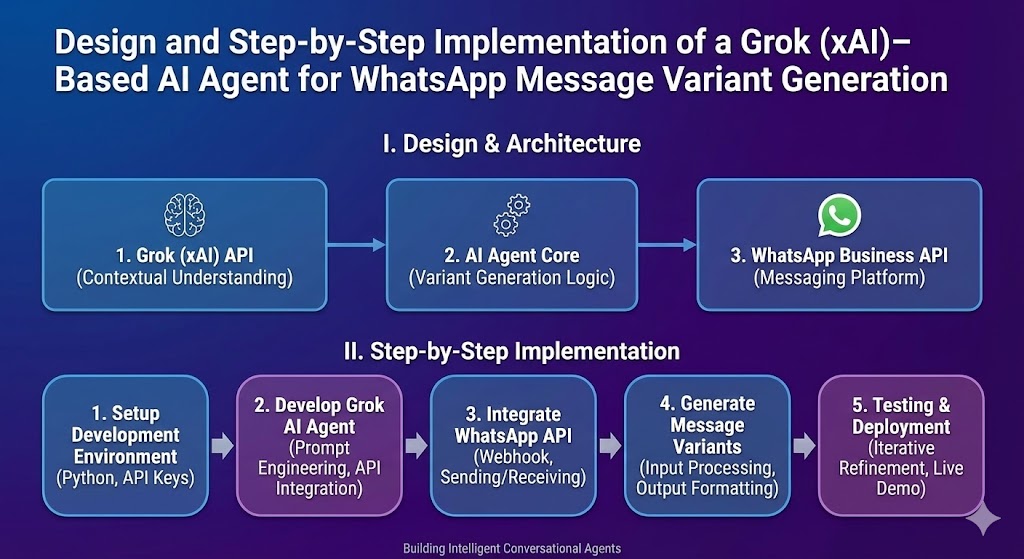Introduction
Science and technology are the twin engines of human progress. They have transformed our world, shaping everything from the way we communicate to the way we understand the universe. This blog delves into the fascinating journey of science and technology, highlighting key milestones, current trends, and future possibilities.
A Brief History of Science and Technology
Ancient Innovations
- The Wheel: One of the earliest technological innovations, the wheel, dates back to around 3500 BCE. Its invention revolutionized transport and laid the foundation for numerous other advancements.
- Agricultural Revolution: The transition from hunter-gatherer societies to settled agricultural communities around 10,000 BCE marked a significant shift. Innovations in farming tools and techniques led to surplus production, supporting larger populations and the development of cities.
Classical Era
- Greek and Roman Contributions: The Greeks made significant contributions to science, with figures like Archimedes and Euclid laying the groundwork for mathematics and engineering. The Romans, on the other hand, excelled in engineering, building roads, aqueducts, and large-scale architectural structures.
- Chinese Innovations: Ancient China was a hub of scientific and technological advancements, including the invention of paper, gunpowder, the compass, and printing. These innovations had a profound impact on global history.
The Scientific Revolution
- Copernican Revolution: Nicolaus Copernicus’s heliocentric model of the universe challenged the long-held geocentric view, sparking a wave of scientific inquiry and discovery.
- Galileo and Newton: Galileo’s use of the telescope and Newton’s laws of motion and universal gravitation were pivotal in advancing our understanding of the natural world.
The Industrial Revolution
- Mechanization and Factories: The late 18th and early 19th centuries saw the rise of mechanization. The invention of the steam engine by James Watt and the establishment of factories revolutionized production processes.
- Transportation: Innovations such as the steam locomotive and the telegraph transformed transportation and communication, shrinking the world and accelerating the pace of life.
The 20th Century: The Age of Technology
- Electrification: The widespread adoption of electricity powered a new wave of technological innovations, from household appliances to industrial machinery.
- The Digital Revolution: The development of the transistor, integrated circuits, and the microprocessor led to the birth of computers and the digital age. The invention of the internet in the late 20th century further transformed communication, commerce, and entertainment.
Current Trends in Science and Technology
- Artificial Intelligence and Machine Learning: AI and ML are transforming various industries, from healthcare to finance. Applications range from autonomous vehicles to personalized medicine.
- Biotechnology: Advances in genomics, CRISPR, and personalized medicine are revolutionizing healthcare, offering new treatments for diseases and the potential for gene editing.
- Renewable Energy: The shift towards renewable energy sources like solar, wind, and hydro is crucial in addressing climate change. Innovations in energy storage and smart grids are making renewable energy more viable and efficient.
- Space Exploration: With private companies like SpaceX and Blue Origin leading the way, space exploration is entering a new era. Missions to Mars, the Moon, and beyond are on the horizon, promising new discoveries and opportunities.
Future Possibilities
- Quantum Computing: Quantum computers have the potential to solve problems that are currently intractable for classical computers, with applications in cryptography, materials science, and complex system modeling.
- Nanotechnology: Manipulating matter at the atomic and molecular level could lead to breakthroughs in medicine, electronics, and materials science.
- Human Augmentation: Advances in biotechnology and AI may enable enhancements in human physical and cognitive abilities, blurring the lines between human and machine.
The Latest in Science and Technology in 2024: Innovations Shaping Our Future
Introduction
As we navigate through 2024, the landscape of science and technology continues to evolve at a breathtaking pace. This blog explores the most recent advancements and breakthroughs, shedding light on how they are transforming our world. From artificial intelligence to renewable energy, these innovations are driving progress and opening new frontiers.
Artificial Intelligence and Machine Learning
- Generative AI: 2024 has seen significant advancements in generative AI, with models becoming more sophisticated and capable of producing highly realistic text, images, and even videos. These AI systems are being used in creative industries, from generating art and music to writing and content creation.
- AI in Healthcare: AI continues to revolutionize healthcare, with new algorithms enhancing diagnostic accuracy and personalized treatment plans. AI-powered tools are now being used to predict patient outcomes, optimize treatment protocols, and even assist in complex surgeries.
- AI Ethics and Regulation: As AI becomes more integrated into daily life, concerns about ethics and regulation have intensified. 2024 has seen a push for more robust frameworks to ensure that AI development and deployment are transparent, fair, and accountable.
Biotechnology and Medicine
- CRISPR and Gene Editing: CRISPR technology has made significant strides, with new applications in treating genetic disorders. In 2024, there have been successful trials in using CRISPR to edit genes responsible for conditions like sickle cell anemia and muscular dystrophy.
- Personalized Medicine: Advances in genomics and biotechnology are making personalized medicine more accessible. Tailoring treatments to individual genetic profiles is becoming a standard practice, improving efficacy and reducing side effects.
- mRNA Vaccines: Building on the success of mRNA vaccines during the COVID-19 pandemic, researchers are exploring new applications. In 2024, mRNA vaccines are being developed for diseases like malaria, HIV, and certain cancers, showing promising results in early trials.
Renewable Energy and Sustainability
- Solar Energy: Solar technology has continued to improve, with more efficient and affordable solar panels hitting the market. Innovations in perovskite solar cells are particularly noteworthy, offering higher efficiency and flexibility compared to traditional silicon-based panels.
- Energy Storage: The development of advanced battery technologies is addressing one of the major challenges of renewable energy—storage. Solid-state batteries and flow batteries are among the breakthroughs in 2024, providing safer and more efficient storage solutions.
- Green Hydrogen: Green hydrogen, produced using renewable energy, is gaining traction as a clean fuel alternative. In 2024, several large-scale green hydrogen projects have been launched, aimed at decarbonizing industries like steel production and aviation.
Space Exploration and Technology
- Artemis Program: NASA’s Artemis program continues to make headlines as it aims to return humans to the Moon by the end of the decade. In 2024, the Artemis II mission, an uncrewed test flight around the Moon, has successfully demonstrated the capabilities of the new Space Launch System (SLS) and Orion spacecraft.
- Mars Missions: The race to Mars is heating up, with NASA and private companies like SpaceX making significant progress. In 2024, the Mars Sample Return mission has achieved a major milestone by successfully collecting and sealing samples for return to Earth.
- Commercial Spaceflight: Commercial spaceflight is becoming more routine, with companies offering suborbital and orbital flights to private individuals. This year, several high-profile tourist missions have taken place, bringing space travel closer to being a mainstream activity.
Quantum Computing
- Quantum Supremacy: In 2024, multiple companies have claimed to achieve quantum supremacy, where a quantum computer performs a calculation that is infeasible for classical computers. These breakthroughs are paving the way for practical applications in cryptography, material science, and complex system simulations.
- Quantum Internet: Efforts to develop a quantum internet, which would enable ultra-secure communication using the principles of quantum entanglement, have advanced significantly. In 2024, there have been successful demonstrations of long-distance quantum communication, bringing us closer to a global quantum network.
Robotics and Automation
- Humanoid Robots: Humanoid robots are becoming more sophisticated and versatile. In 2024, advancements in robotics have led to robots capable of performing complex tasks in healthcare, manufacturing, and customer service settings.
- Automation in Agriculture: Automation technology is transforming agriculture, with robots and drones being used for planting, monitoring, and harvesting crops. These technologies are improving efficiency and sustainability in food production.
- AI-Driven Robotics: The integration of AI with robotics is creating machines that can learn and adapt to new tasks. In 2024, AI-driven robots are being deployed in a variety of industries, from logistics to construction, enhancing productivity and safety.
Conclusion:
The journey of science and technology is a testament to human ingenuity and curiosity. From ancient innovations to modern marvels, each step forward has brought new challenges and opportunities. As we look to the future, the potential for further advancements is boundless. Embracing these changes with a sense of responsibility and ethical consideration will be crucial in shaping a better world for future generations.
2024 is a remarkable year for science and technology, marked by groundbreaking advancements and transformative innovations. From AI and biotechnology to renewable energy and space exploration, these developments are shaping a future that promises to be more intelligent, sustainable, and interconnected. As we continue to push the boundaries of what is possible, the importance of ethical considerations and responsible innovation cannot be overstated. Embracing these principles will ensure that the benefits of science and technology are realized for all of humanity.
References
- “AI Trends in 2024,” MIT Technology Review.
- “Breakthroughs in Biotechnology,” Nature Biotechnology.
- “Renewable Energy Innovations,” International Energy Agency.
- “NASA’s Artemis Program,” NASA.gov.
- “Quantum Computing Milestones,” IBM Research.
- “Advances in Robotics,” IEEE Robotics and Automation Society.
- “A Brief History of Science and Technology,” Smithsonian Institution.
- “The Scientific Revolution,” Stanford Encyclopedia of Philosophy.
- “The Industrial Revolution,” History.com.
- “The Digital Revolution,” MIT Technology Review.
- “Current Trends in AI and ML,” Nature.
- “Advances in Biotechnology,” National Institutes of Health.
- “Renewable Energy Technologies,” International Energy Agency.
- “Future of Space Exploration,” NASA









